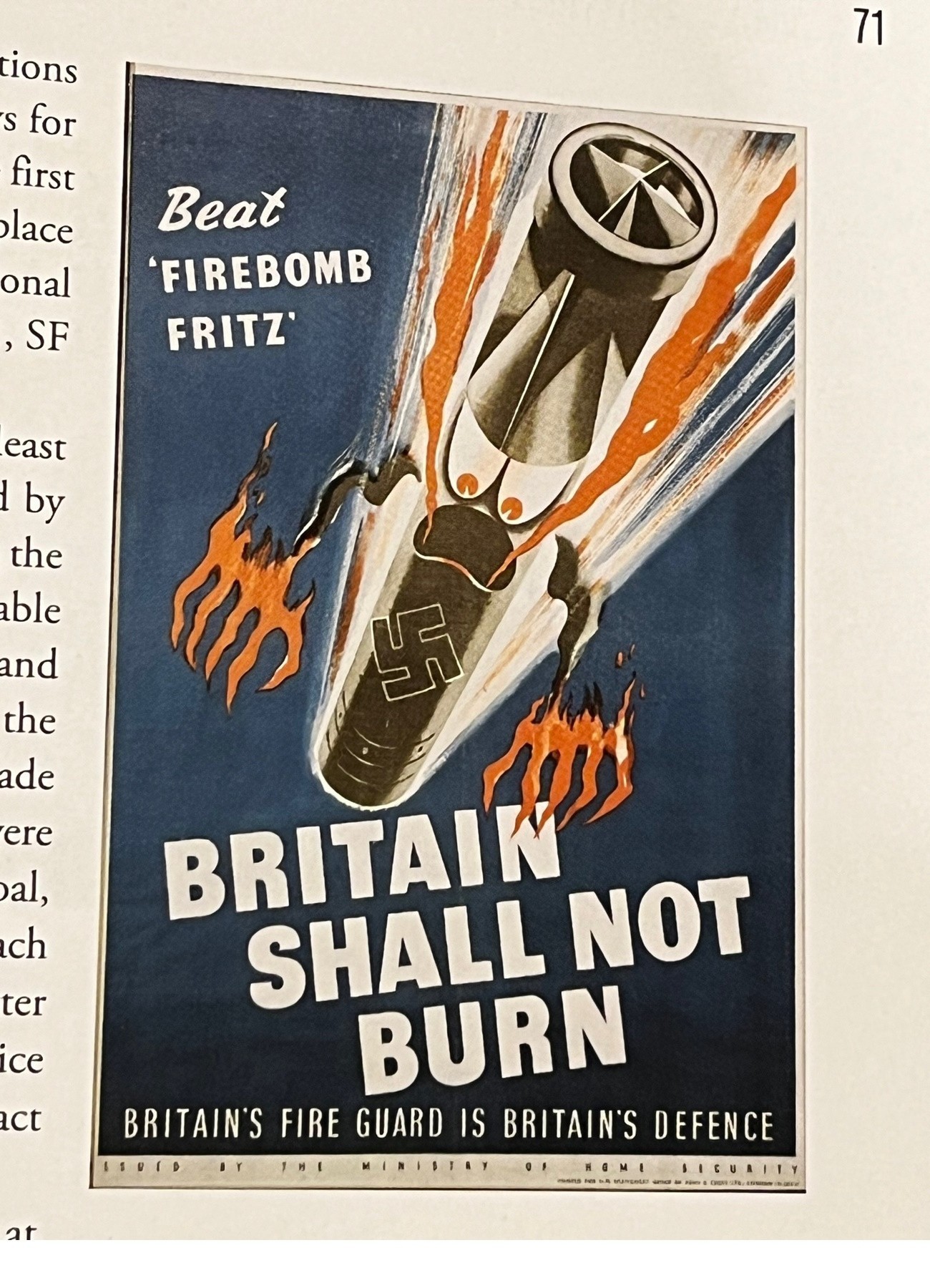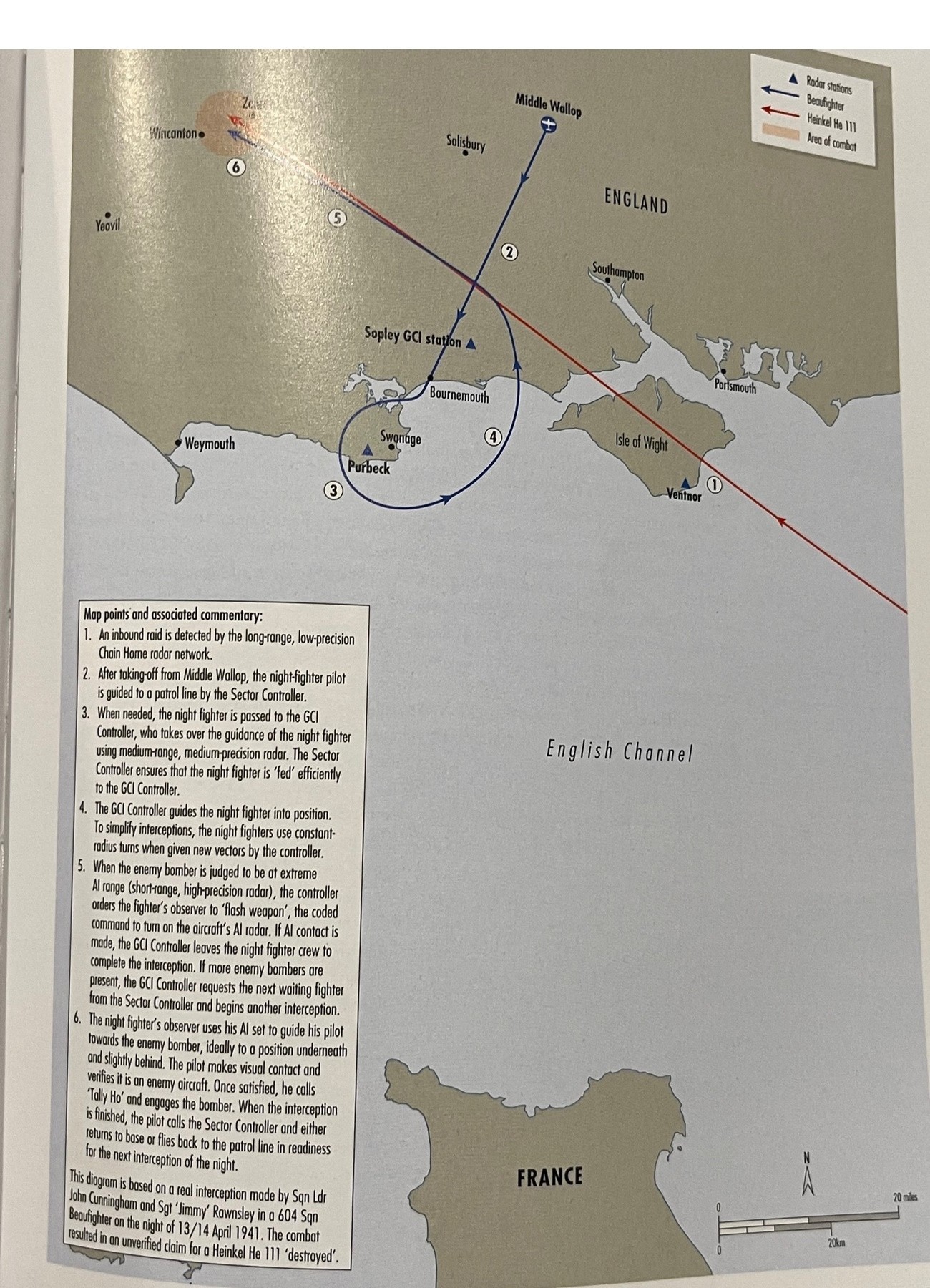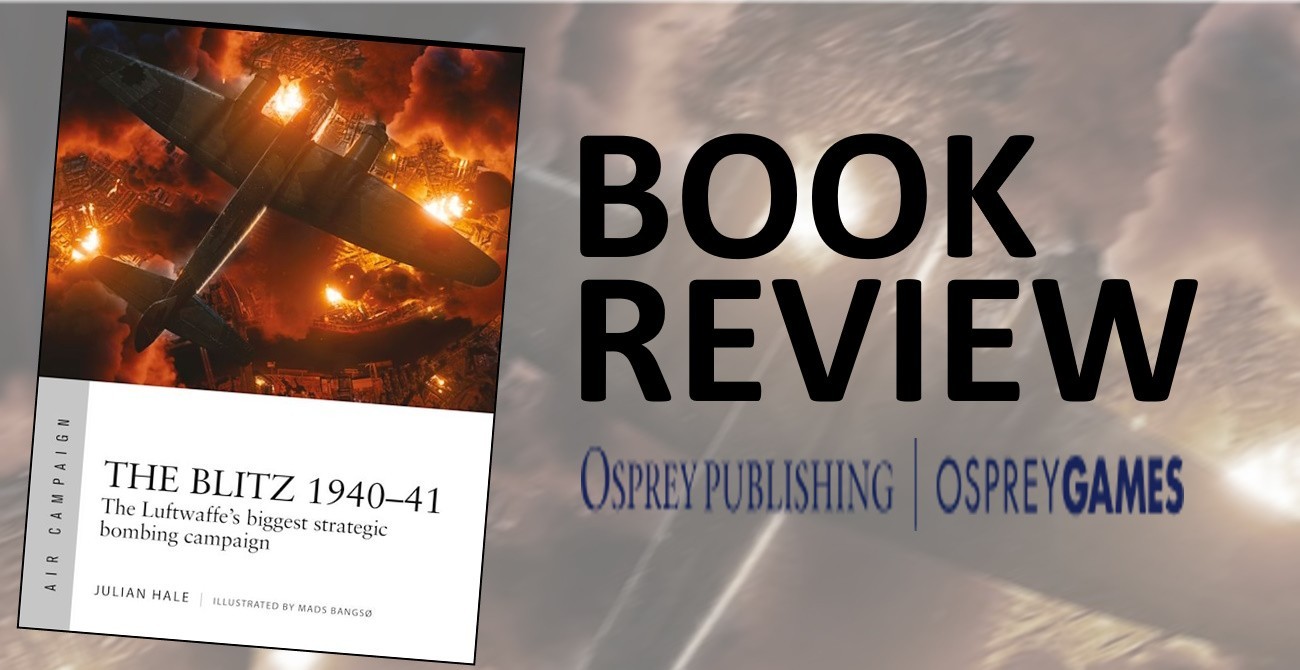
An illustrated history of how the Luftwaffe intended 'the Blitz' to knock Britain out of the war, emphasising the German point of view and detailing how Britain's defences and civilians responded, by Julian Hale (Author) and Mads Bangsø (Illustrator). 96 pages.

Table of Contents
INTRODUCTION
CHRONOLOGY
ATTACKER'S CAPABILITIES
- Luftwaffe order of battle, 7 September, 1941
- Doctrine
- The aircraft
- Equipment and tactics
DEFENDER'S CAPABILITIES
- RAF order of battle, 7 September, 1941
- Civil defence
- The aircraft
- Commanders
CAMPAIGN OBJECTIVES
THE CAMPAIGN
- The Blitz begins, 7 September-13 October
- The night assault
- The conflict over future strategy
- The London Blitz renewed
- Fighter defence
- The campaign on the Midlands and Southern ports
- Regenschirm: The Birmingham Blitz
- 'Crucible': Sheffield
- The Manchester Blitz
- The Southampton Blitz
- London campaign renewed
- The Anti-Aircraft Contribution
- Bromide, Domino and Starfish
- The Battle of the ports
- The Swansea and Cardiff Blitzes
- The Clydebank Blitz- Problems over Bristol
- Hull, Plymouth-Devonport
- London
- The Anti-shipping campaign
AFTERMATH AND ANALYSIS
BIBLIOGRAPHY
INDEX
Review,
There has been plenty written about the blitz in general, and this book fills a niche with its focus on the Luftwaffe' bombing campaign and being an accessible book, ie a quick read over a weekend. The format is A3 portrait, and is full of detail for such a concise book: tables, maps, photographs, its all there. And words, too. Plenty of words.
The author's style appealed to me, and I found myself reading it until I had to go and do something else, I read it over a week; it is detailed, without being academic; and focused, without be boring.
As per the table of contents, there is plenty covered here, and the book follows a familiar format of one side, the other side, the campaign, and an analysis of the outcome. Which is fine and suits the topic well, if as a result some subjects are only covered fleetingly.
Essentially, the Luftwaffe was unable to bring Britian to her knees by bombing London alone, and once that became clear, Hitler and Gorring lost interest, and the campaign faltered.
There is a good explanation of how both sides sought to outwit the other, with the Germans for their part trying to improve navigation, and therefore accuracy for greater efficiency (ie getting the bombs within tens of meters, not hundreds of meters of the target), whilst the English tried to counter that by decoys, deception, or interdiction, including air curtains, balloons, and an aerial minefield, along with AAA.
The colour plates are a little sparse, and I'd of liked some colour profiles of the Luftwaffe's bombers, but this does not detract from an otherwise great read.
Definitely recommended as a good summary of the blitz, London, 1940-41.
The Blitz 1940–41 The Luftwaffe's biggest strategic bombing campaign
Author: Julian Hale
Illustrator: Mads Bangsø
Published: 17 Aug 2023
Format: Paperback
Edition: 1st
Extent: 96pages
ISBN9781472857880
Imprint: Osprey Publishing
Illustrations: Illustrated throughout with around 60 photos and at least 14 pages of colour illustrations
Dimensions: 248 x 184 mm
Series: Air Campaign
Short code: ACM 38
Publisher: Bloomsbury Publishing
Available as a paperback, Ebook [PDF] and Ebook [Epub & Mobi]
Please remember, when contacting retailers or manufacturers, to mention that you saw their products highlighted here – on AEROSCALE.

